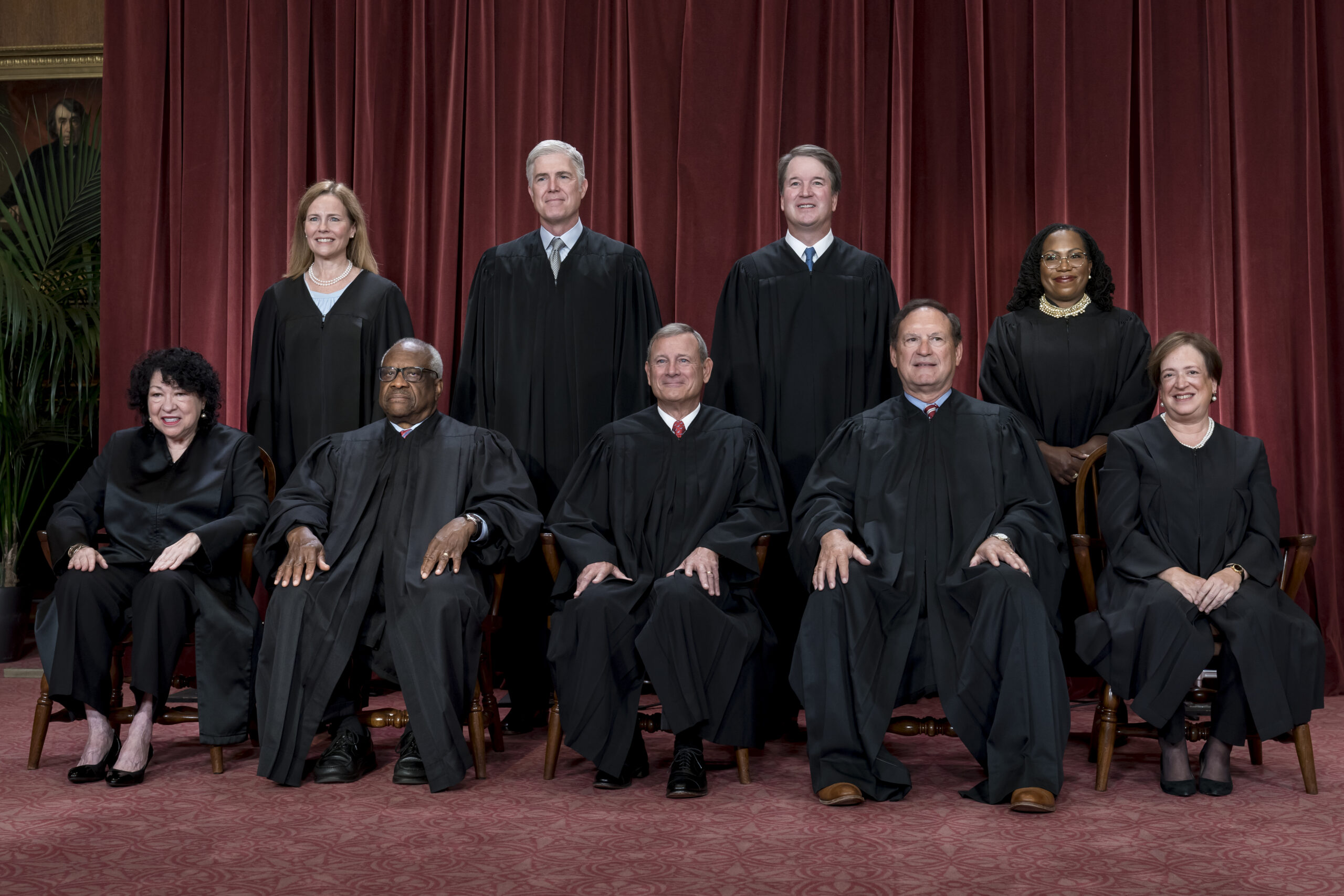The Supreme Court is slated to hear arguments in Moore v. Harper on Wednesday, a dispute between voting rights advocates and North Carolina‘s Republican-controlled General Assembly, which has the potential to increase the power that state legislatures have over voting issues depending on how justices approach the “independent state legislature” theory.
The high court is tasked to decide whether state election laws and political maps passed by state legislatures should continue to be subject to judicial review in state courts. The issue specifically pertains to a Republican gerrymander of North Carolina’s 14 House seats that the state’s Supreme Court found ran afoul of the state’s constitution earlier this year.
Jason Snead, executive director of the Honest Elections Project, told the Washington Examiner on a conference call Thursday that Moore is an “immensely important case” and is “fundamentally about what the [U.S. Constitution’s] elections clause says,” adding that the case outcome could decide “which institution is in the driver’s seat” when it comes to establishing election laws and redistricting.
SUPREME COURT COULD BOLSTER STATES’ AUTHORITY OVER ELECTIONS AHEAD OF 2024 RACE

Snead, who submitted a friend-of-the-court brief endorsing the independent state legislature theory as part of a broader network of groups connected to the influential conservative Leonard Leo, agrees with North Carolina GOP lawmakers who say “the times, places and manner” of holding elections was specifically assigned by the Constitution to state legislatures. In essence, the legislatures argue state courts should have no more say in overturning or changing election laws than they can in overriding other federal laws with nationwide impact.
On the other side of the argument, critics of the independent state legislature theory allege a near-complete embrace of the North Carolina GOP’s argument could have lasting impacts including depriving constituents of crucial voting rights protections and upending historical understandings of the Constitution.
The theory “would wreak havoc on existing election law by nullifying hundreds of state constitutional provisions, state court decisions, and other state laws governing federal elections,” according to Protect Democracy, a nonprofit group that was co-founded by attorneys who served in the White House Counsel’s Office under former President Barack Obama.
And while several media outlets have pushed the notion that the case could be used by state legislatures to engage in election subversion and alter the outcome of presidential elections, some legal experts such as Rick Hasen, a professor at the UCLA Law School, have pushed back on that idea.
Hasen tweeted in August that “even under the most muscular reading of the independent state legislature doctrine, courts would not read it to allow a state legislature, after it has allowed voters to vote for president, to retroactively appoint legislators themselves.”
Another misconception of the independent state legislature theory is that it is a “fringe” idea pushed by right-wing proponents. In actuality, it was one of many considerations in the high-profile election dispute of 2000, Bush v. Gore. Justice Clarence Thomas joined a concurring opinion from then-Chief Justice William Rehnquist, which raised the idea that state courts have overstepped their powers to fight elections.
The high court ultimately didn’t adopt that approach in its 2000 decision. Rather, it clung to the Constitution’s equal protection clause to rule for Bush and settled the dispute over his narrow election victory.
Earlier this year, conservative Justice Samuel Alito issued a dissent when the high court decided in a preliminary action to allow North Carolina’s court-drawn map to be used for the 2022 midterm election and seemingly raised points in conjunction with the independent state legislature theory. Thomas and Justice Neil Gorsuch both joined the dissent.
“This Clause could have said that these rules are to be prescribed ‘by each State,’ which would have left it up to each State to decide which branch, component, or officer of the state government should exercise that power,” Alito wrote in the March dissent. “But that is not what the Elections Clause says. Its language specifies a particular organ of a state government, and we must take that language seriously.”
That leaves Chief Justice John Roberts and Justices Brett Kavanaugh and Amy Coney Barrett with a less decisive public opinion of the North Carolina lawmakers’ argument. While Kavanaugh did not join the dissent, he hinted briefly at some willingness to look into the theory.
The high court’s three Democratic appointees, Justices Elena Kagan, Ketanji Brown Jackson, and Sonia Sotomayor, are expected to rule against the Republican lawmakers’ argument in Moore, according to Duke law professor Thomas Metzloff.
Republican advocates renewed interest in the independent state legislature theory during the 2020 election, pushing the idea in instances such as when the Pennsylvania Supreme Court allowed three extra days for mailed ballots to arrive beyond the deadline imposed by the legislature. Former President Donald Trump’s legal counsel had endorsed the theory at the time, which may have boosted, if it were in effect, the basis of his election court disputes if the vote was closer between him and President Joe Biden.
CLICK HERE TO READ MORE FROM THE WASHINGTON EXAMINER
Mark W. Smith, a constitutional attorney and host of the Four Boxes Diner YouTube channel, told the Washington Examiner he thinks the case is going to force the justices to “go back to 1791” to understand what the founders intended for the Constitution.
“I don’t think it’s gonna be about prior cases as much as just the function of originalism, reading the text, applying the history, and then see where that information dictates in terms of the outcome,” Smith said.
